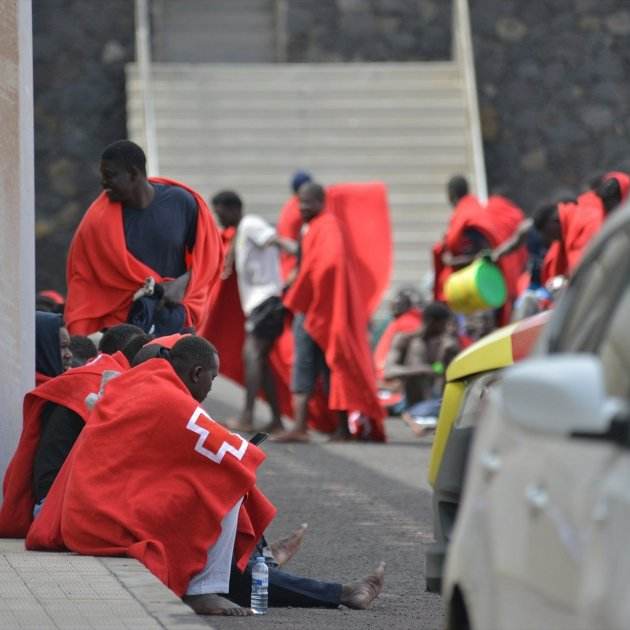The Canary Islands have been experiencing a major migration crisis in recent months, which has intensified in recent days. Since August, more than 3,000 people have arrived on the island of El Hierro, 497 of whom are minors. In this context, the vice-president and economic adviser of the Canary Islands government, Manuel Domínguez, of the People's Party (PP), has made statements in which he has expressed his vexation at the lack of help from the Spanish government. In fact, Domínguez called on the acting Spanish prime minister, Pedro Sánchez, to treat the current migration crisis affecting the Canary Islands "as if it were happening in Catalonia", highlighting a latent feeling of Catalanophobia.
"They treat us as if we were second-class citizens", denounced Domínguez, according to statements made to the EFE agency this Thursday from the wharf at La Restinga, in El Hierro, the island most affected in recent days by the arrival of precarious vessels containing many migrants. Domínguez called for "a single command" in immigration in the Spanish government, because "it is not possible for the negotiation to be with six different ministries; six ministries that are not coordinated, six ministries that say different things, six ministries that fail to exercise their functions in this territory".
And continuing with this argument, the discourse of the archipelago government's representative ends up referring to Catalonia. "We want to make the central government, and specifically the president of the government, Pedro Sánchez, see that this has to be a matter for the state, a problem as if it were happening in Catalonia, that he should accept the idea that this is happening in Catalonia, surely he would treat us differently", said the Canarian vice-president.
For now, one of the main concerns of the Canary Islands government is health care, because the population of El Hierro cannot be left "without assistance" due to the arrival of 1,200 people in two days, a figure equivalent to "a little more than 10% of the total population of the island".
Catalonia has already welcomed 300 migrants who arrived in the Canary Islands
Despite the sense of ill-feeling and grievance expressed by the Canarian government, the fact is that Catalonia has already shown solidarity with this crisis that the Canaries are experiencing by taking in around 300 migrants from sub-Saharan Africa. This group arrived in Calella, in the Maresme, last Thursday night, to the surprise of the local council and residents, who did not expect the arrival of so many people at once.
This group consists of young men who arrived in the Canary Islands by boat and have subsequently been transferred to Catalonia. The migrants have asked for asylum, and the Red Cross has accommodated them - as part of its reception programme - in several hotels in the municipality, and in the coming weeks it will study each case and relocate them. The mayor, Marc Buch, noted in statements to Catalunya Ràdio that "in a municipality of 20,000 inhabitants, the arrival of 300 people puts a lot of strain on the system", referring to health and social services.
